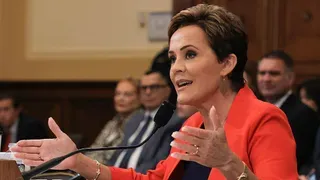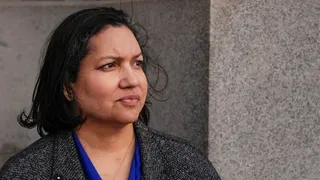February 7, 2016
UN Panel: Too Often Only Half of Aid Money Gets to the Needy
Edith M. Lederer READ TIME: 2 MIN.
Too often only half of the money from donors is getting to the millions of people devastated by conflicts and natural disasters who desperately need humanitarian aid, the co-chair of a U.N.-appointed panel said Wednesday.
Kristalina Georgieva, the European Commission's vice president for budget and human resources, said the nine-member panel trying to find new financing to help the rapidly growing number of people needing humanitarian aid is urging donors and aid organizations to work more closely to drive down costs.
"Humanitarian money is like gold" because it saves lives, she told a briefing on the panel's report. "But our goals very often are very low karat - a 9 karat gold - because we take a dollar or a pound or a yen or a ruble, and by the time it gets to the recipient it shrinks to only half of what it is worth."
Georgieva said this is because of transaction costs, administration and "because of us creating bureaucracy."
The report said the world is spending around $25 billion to help 125 million people today - more than 12 times the $2 billion spent in 2000 - but there is still a $15 billion annual funding gap. It warned that if the current trend continues, the cost of humanitarian assistance will rise to $50 billion by 2030.
The report focuses on three solutions: mobilizing more funds, shrinking the need for aid by preventing and resolving conflicts, and improving the efficiency of assistance.
"There are plenty of examples where 90, even 95 cents on the dollar get into the hands of people in need," Georgieva told several journalists after the briefing, and these should be emulated as best practices.
In addition, she said, "the most impressive development we have seen" is giving aid recipients cash instead of providing them with food, shelter and medicine which may undermine local farmers and kill the local economy. But she said cash "is still a very small fraction of humanitarian assistance" and urged much greater use.
Georgieva also asked "how come today only 0.2 percent of funding we provide goes direct to local organizations when we know that ... they are the first line of defense when something tragic happens?"
The panel called for an end to competition between aid organizations and between humanitarian and development agencies, which Georgieva called "competitive inefficiency."
"We want to see it moving to be collaborative efficiency," she said.






